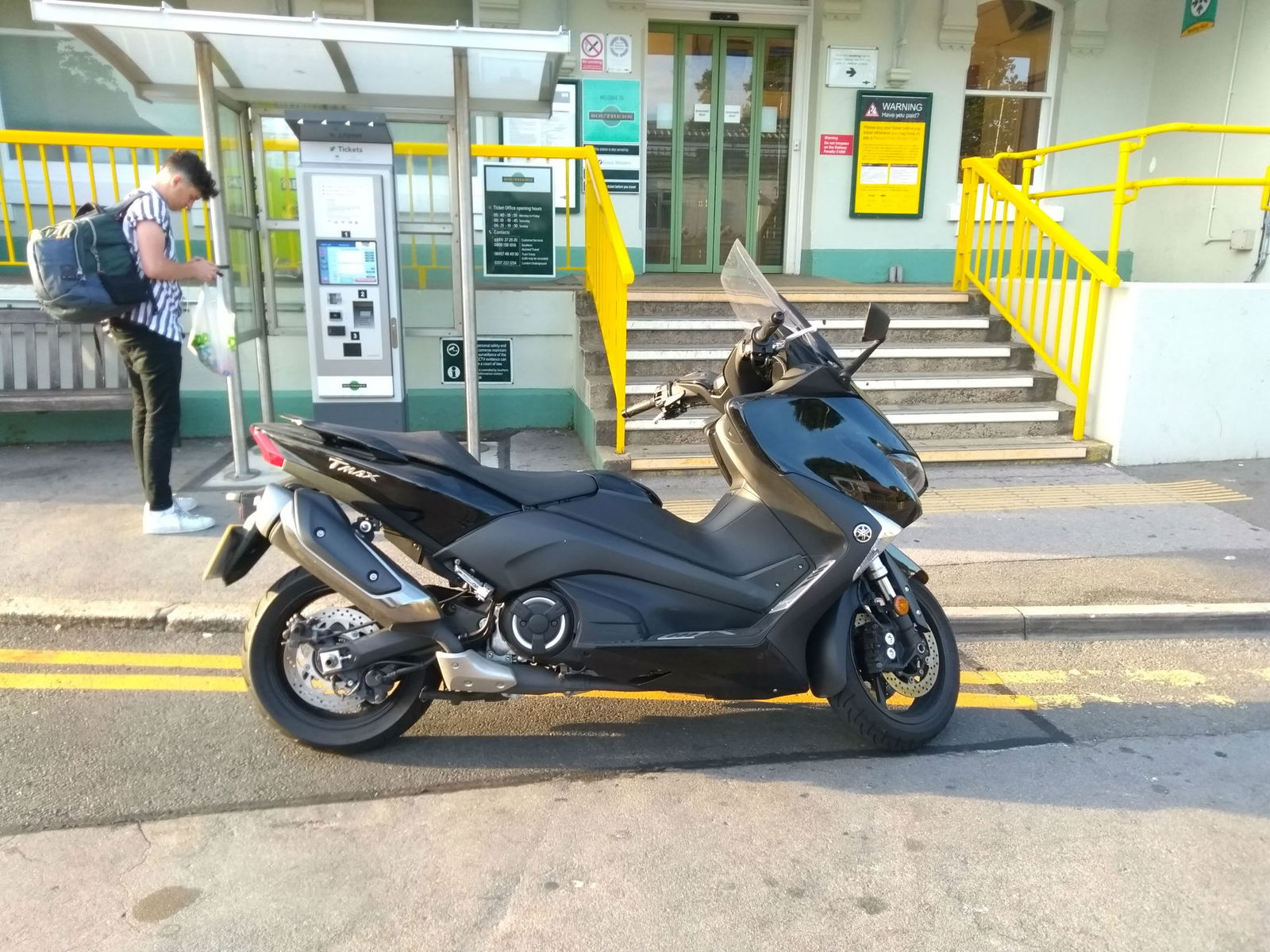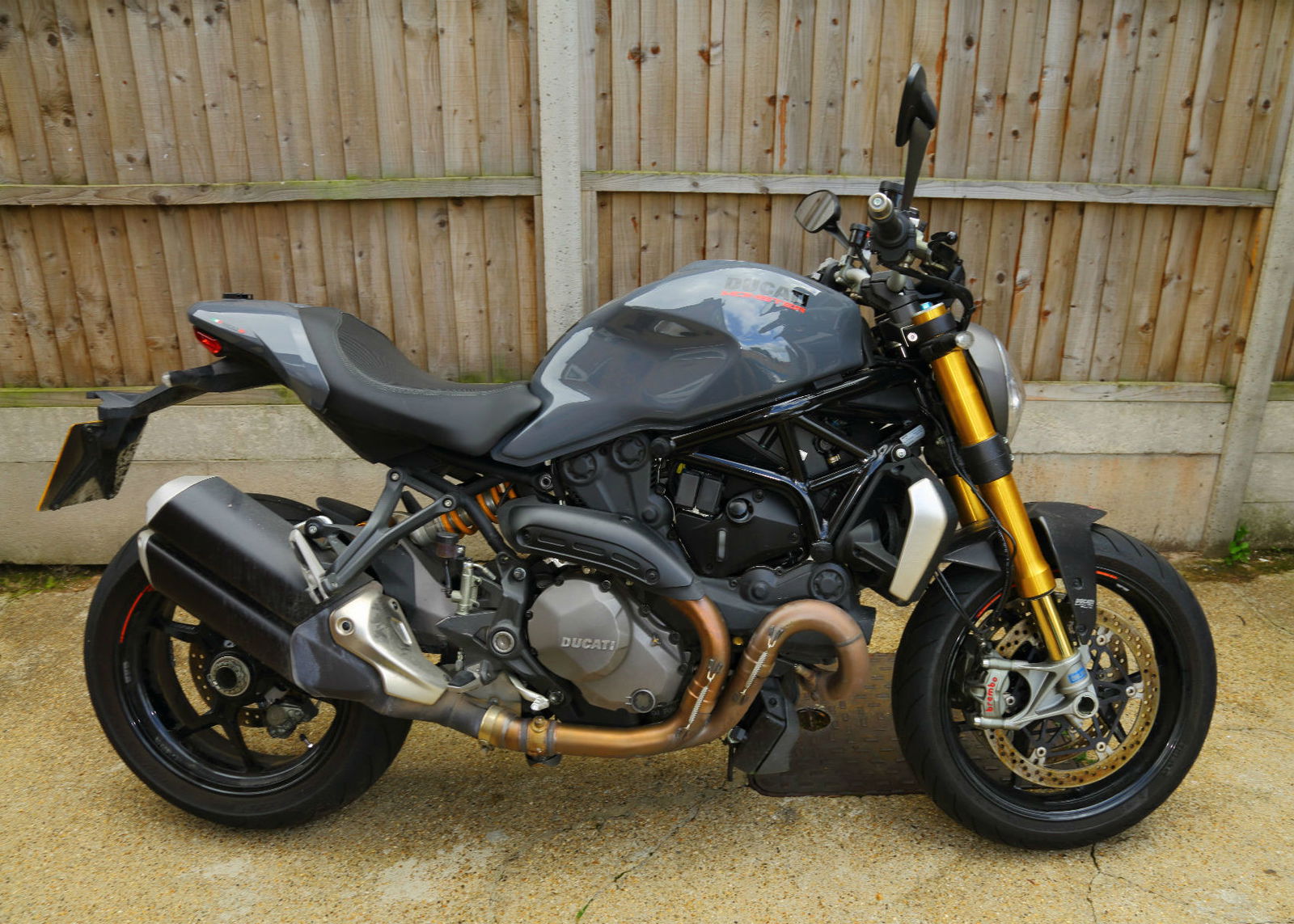Triumph Thruxton R vs BMW R nineT Racer S review
It’s a café racer kick-off

HAVEN’T café racers come a long way? A few years ago there were… well, there weren’t any. You had to make your own.
Now there’s almost one for every budget, from the Royal Enfield Continental GT to Triumph’s Street Cup to these two: the Triumph Thruxton R and BMW R nineT Racer S.
They represent the more expensive end of the market, where you get proper performance with your hipster beard.
The Triumph Thruxton R has been around since last year while the BMW is new for 2017 and the bike lots of us have been waiting for: a café racer derivative of the R nineT.
So let’s get on with this. You know what we’re here for…
Engine
Ah, the Thruxton’s engine. We loved it when we first rode the bike at the launch last year. The appeal has not worn off.
It’s significantly down on peak power and torque compared to its new rival. The Triumph makes a claimed 97hp at 6,750rpm and 82.6lft at 4,950rpm while the BMW’s figures are 110hp at 7,750rpm and 85.5lbft at 6,000rpm.
As a result, the R nineT Racer has more top-end to explore when the road opens up, leaving the Thruxton R behind. The BMW also has a nice, broad spread of torque, so you can be lazy about gear changes.
But with peak power and torque at lower revs, the Thruxton R offers a bit more immediate punch when you open the throttle.
The BMW’s 1170cc boxer twin sounds great – but the Thruxton R’s 1200cc parallel-twin makes a more aggressive rumble. It manages to sound more like an air-cooled engine than the BMW’s, even though it’s the one of the two that’s liquid-cooled.
That aggressive sound lends the Triumph a bit more traditional character, while the punchy power goads you to ride it as fast as it will go, all the time.
That may not be as fast as the BMW on straights, but is outright speed the deciding factor for café racers? Probably not.
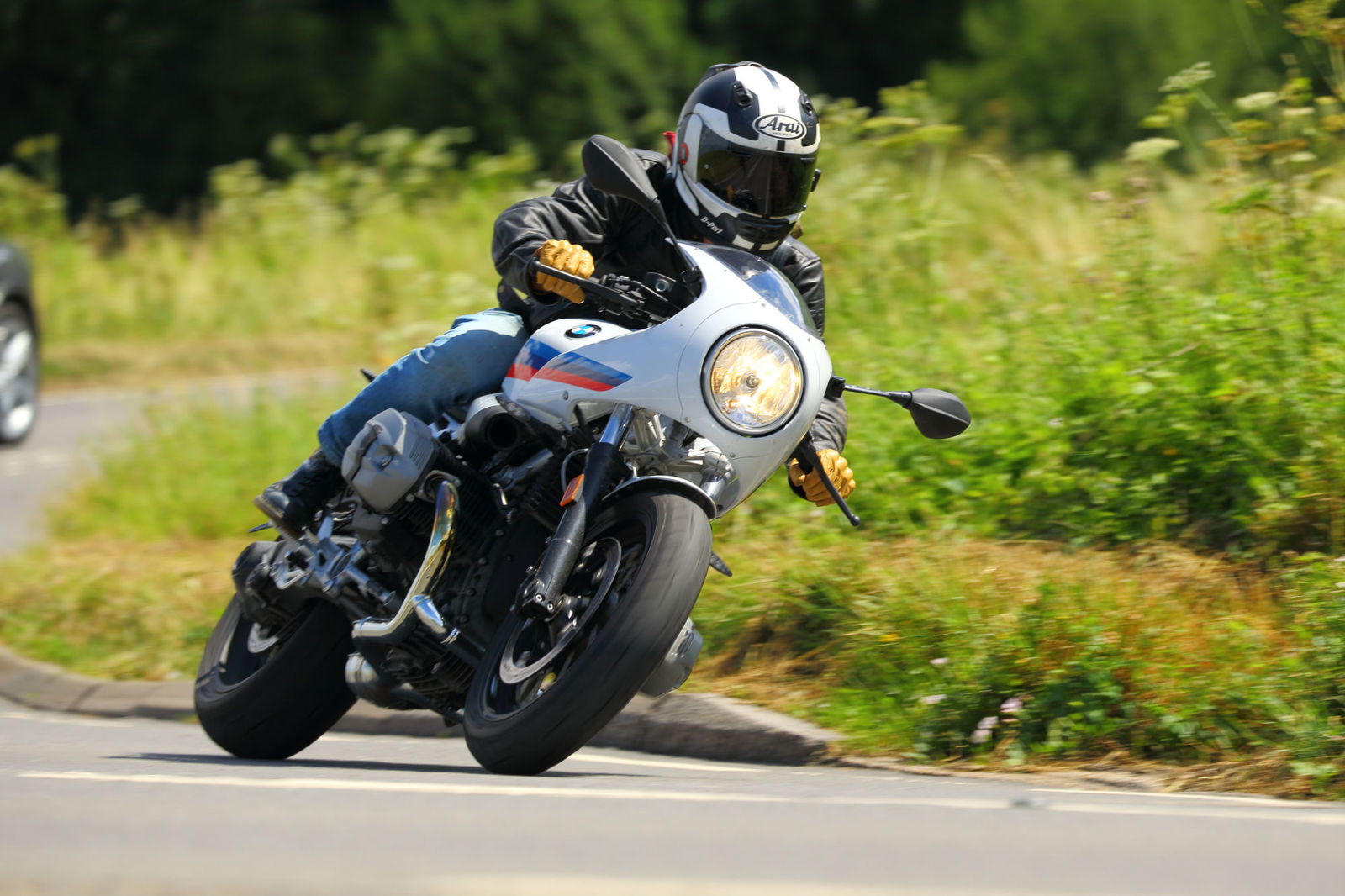
Handling
The first thing you’ll notice about R nineT Race, the moment you sit on it, is the riding position. It’s extreme, sportier than typical even of a sports bike.
If you’re of average height like me, it will have you feeling as though your arms are almost horizontal. It’s possibly even more extreme than the Yamaha XSR900 Abarth, and that feels like you’re diving into a swimming pool.
This affects the handling characteristics. All that weight on your arms can only mean good feedback through the bars – but it’s also not the most natural position from which to turn them.
The R nineT feels stable, solid, and reassuring through bends. It’s not as though it’s an effort to turn either – but the Thruxton R feels more compliant, if only because the position gives you a greater sense of freedom of movement in your arms. It seems to turn more effortlessly. At low-speed it’s more natural to manoeuvre too, although it has a heavy-ish feel.
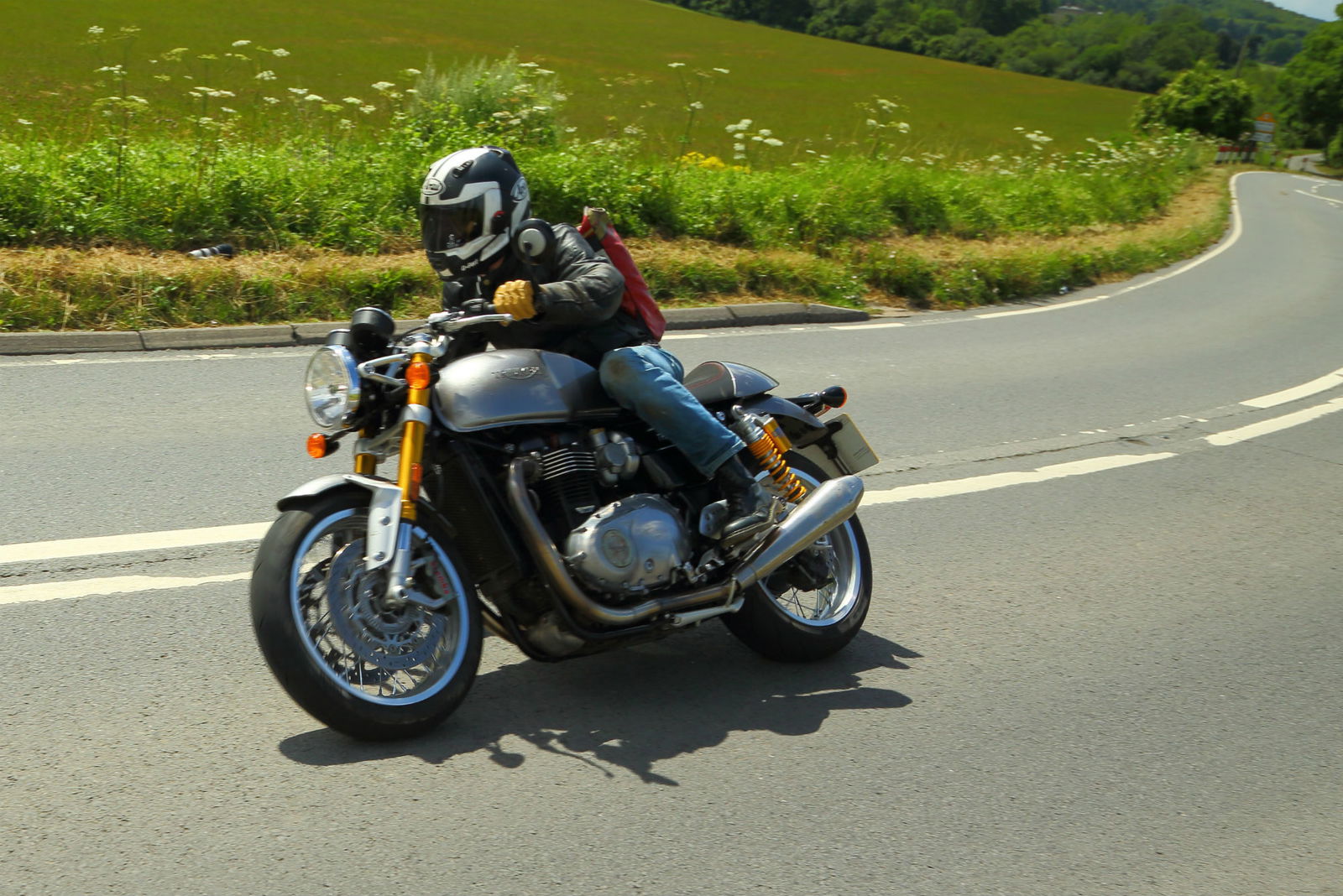
Suspension
While the BMW is based on the same platform as the original R nineT, it’s a lower-spec version, like the R nineT Pure and Scrambler.
That means that instead of the orginal R nineT’s upside-down fork, it’s got a right-way-up non-adjustable 43mm one. At the rear is a shock adjustable for pre-load and rebound damping.
Meanwhile the Thruxton R is fully-adjustable at both ends, with a Showa upside-down piston fork and Öhlins piggyback twin shocks.
In practice, the BMW’s suspension seemed poised and accomplished, if a little jarring over bumps. Again, the riding position may play a part in this.
The Thurxton R’s stock settings kept the bike well settled and composed during cornering and hard braking while offering a little more deference over bumps.
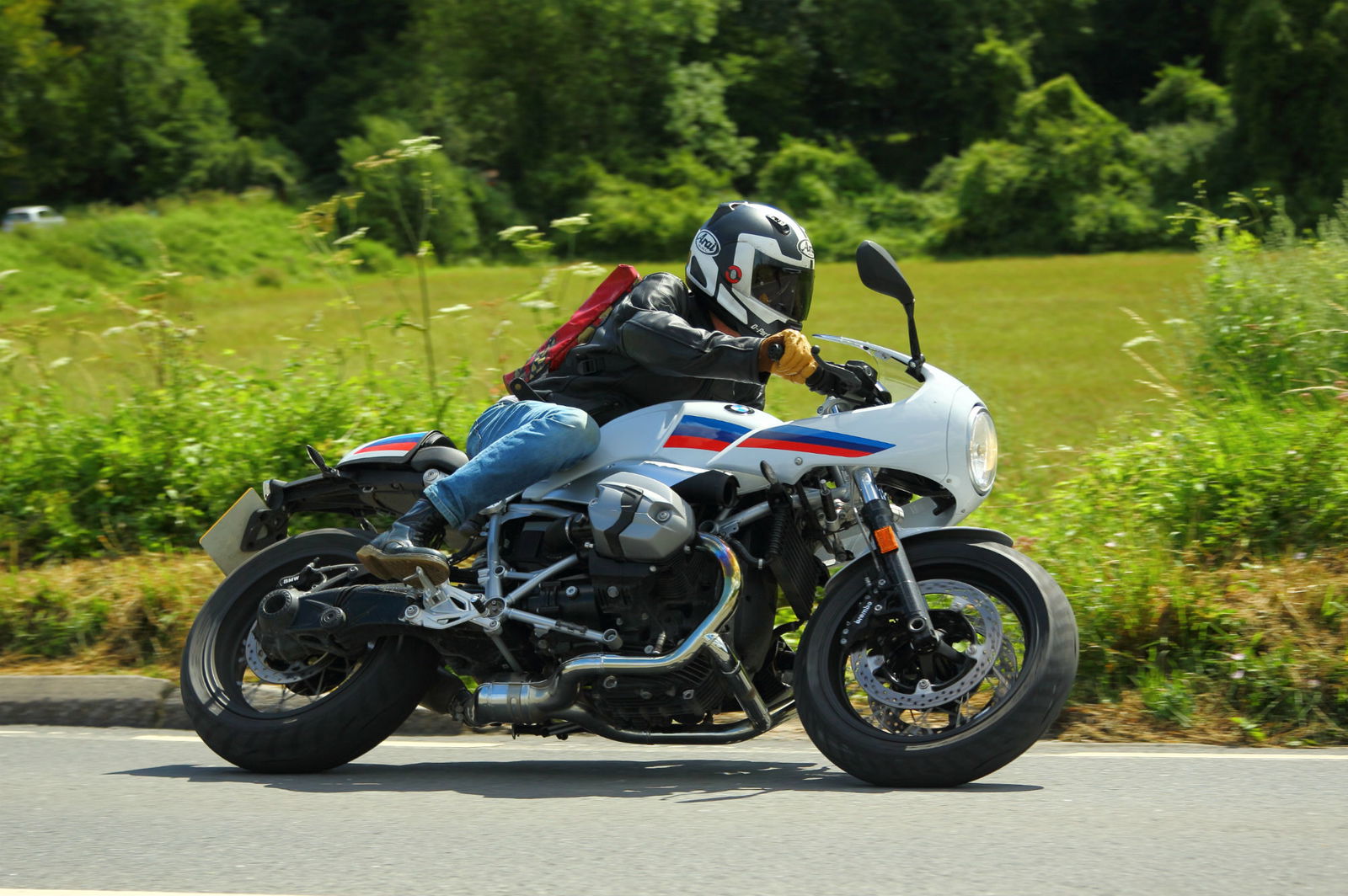
Brakes
Again the BMW falls short on the spec sheet.
Both bikes have twin four-pot Brembo calipers at the front but the Thruxton R’s are radial-mounted monoblocs while the R nineT Racer’s are not.
But again that difference doesn’t play out to a huge deal in practice, because the R nineT Racer’s brakes are very good: powerful, progressive and responsive to a light touch.
Are they quite up to the standard of the Thruxton R’s? No. This bike’s brakes are among the best, with massive bite and precision control.
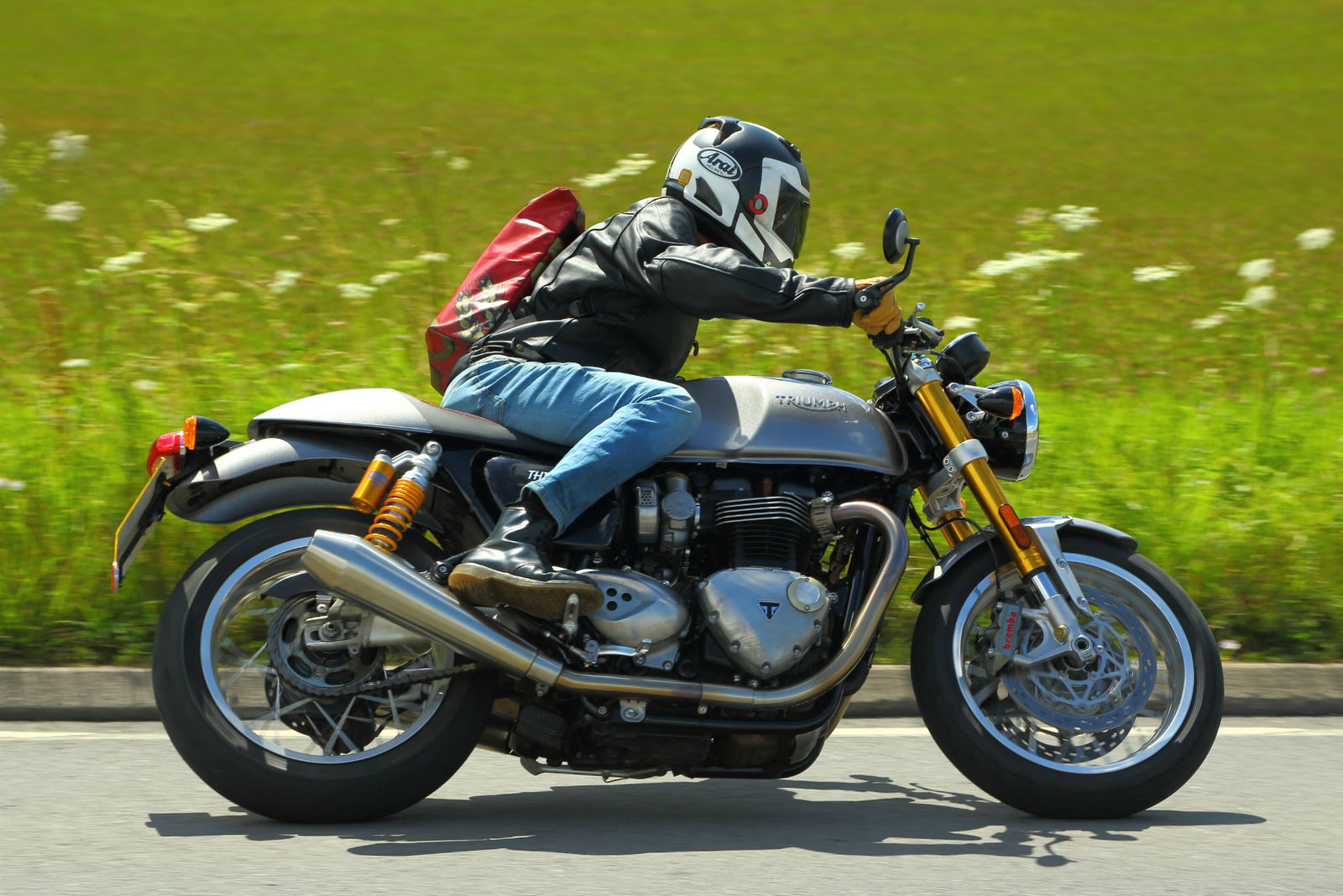
Equipment
The equipment comparison’s easy; the R nineT Racer doesn’t really have any.
Well, it’s got some, like ABS, obviously, and that screen, but there are no riding modes and traction control is a £310 option.
We rode the S version, which also has heated grips, wire-spoked wheels, a chrome exhaust and LED indicators, but costs £700 more than the base version, at £11,615.
The Thruxton R, at £12,200, comes as standard with wire-spoked wheels, traction control and three easy-to-navigate riding modes. And a USB charging socket.
Perhaps it would have been fairer to compare the R nineT Racer to the base-model Thruxton rather than the R version – but that’s also got wire-spoked wheels, riding modes and traction control too, at £10,800.
We like
What BMW have done with the styling. We’ve been waiting for the R nineT to get a café racer fairing ever since we rode the original three years ago and looking it at now, it seems the worth the wait. What could make it look better except an eye-catching blue and white paint scheme and, oh look, they’ve done that too. People will stop and look at this bike. Guaranteed.
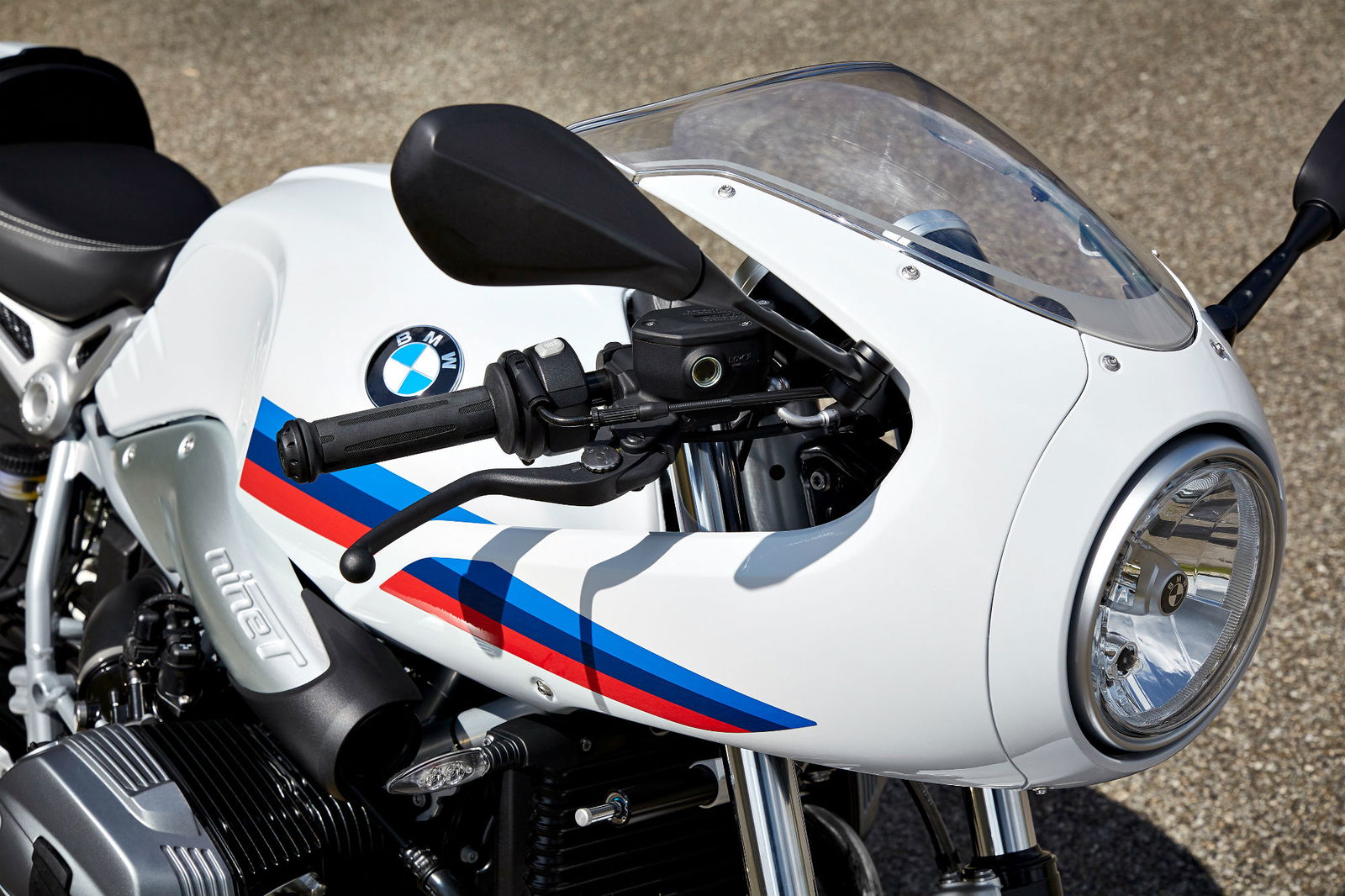
We don’t like
It’s only when you get past the obvious bits like that café racer fairing and striking paint that you realise there isn’t the same attention to detail in the BMW’s styling as the Triumph’s.
Take the Thruxton’s R’s polished top yoke where the BMW’s looks like any other bit of aluminium.
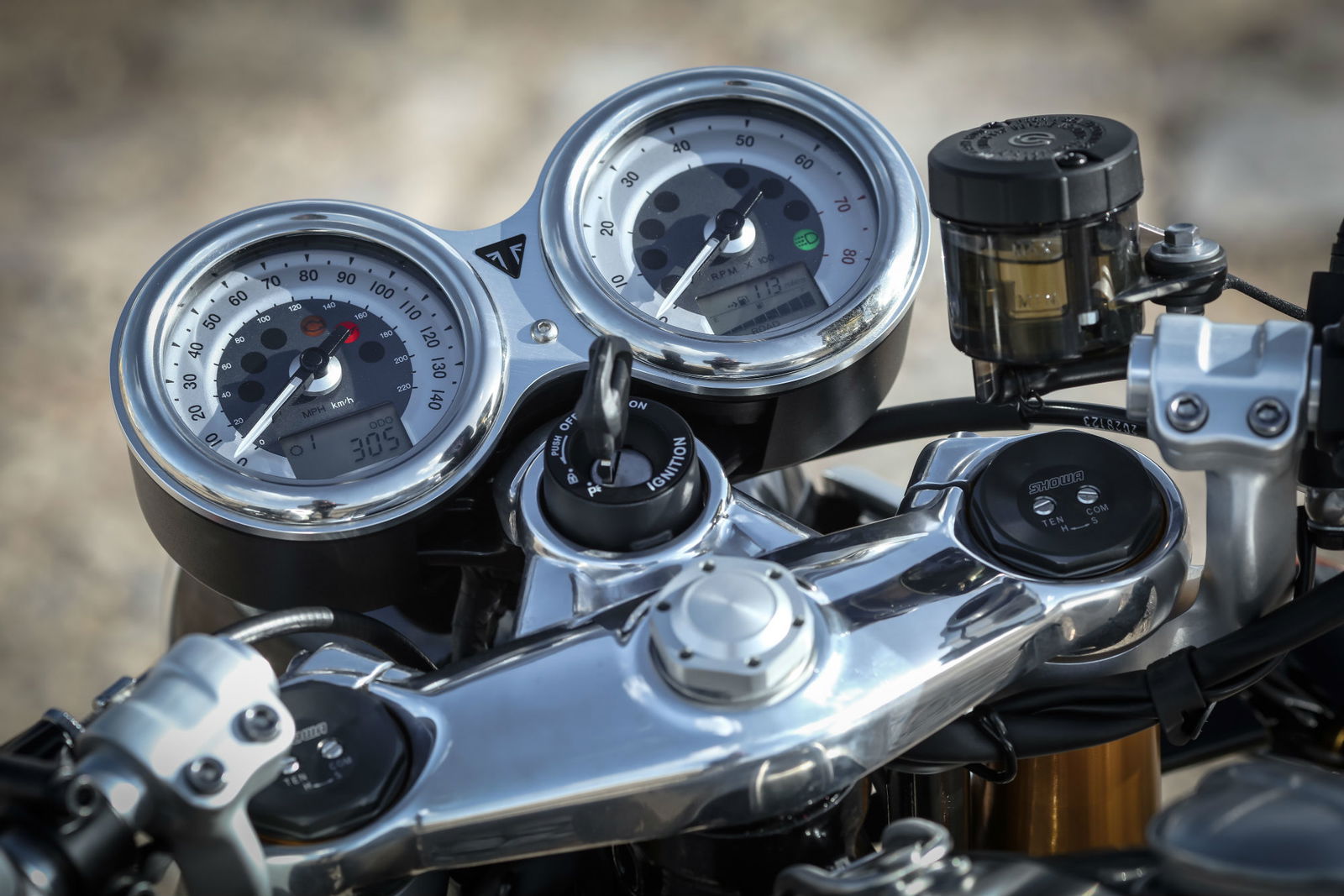
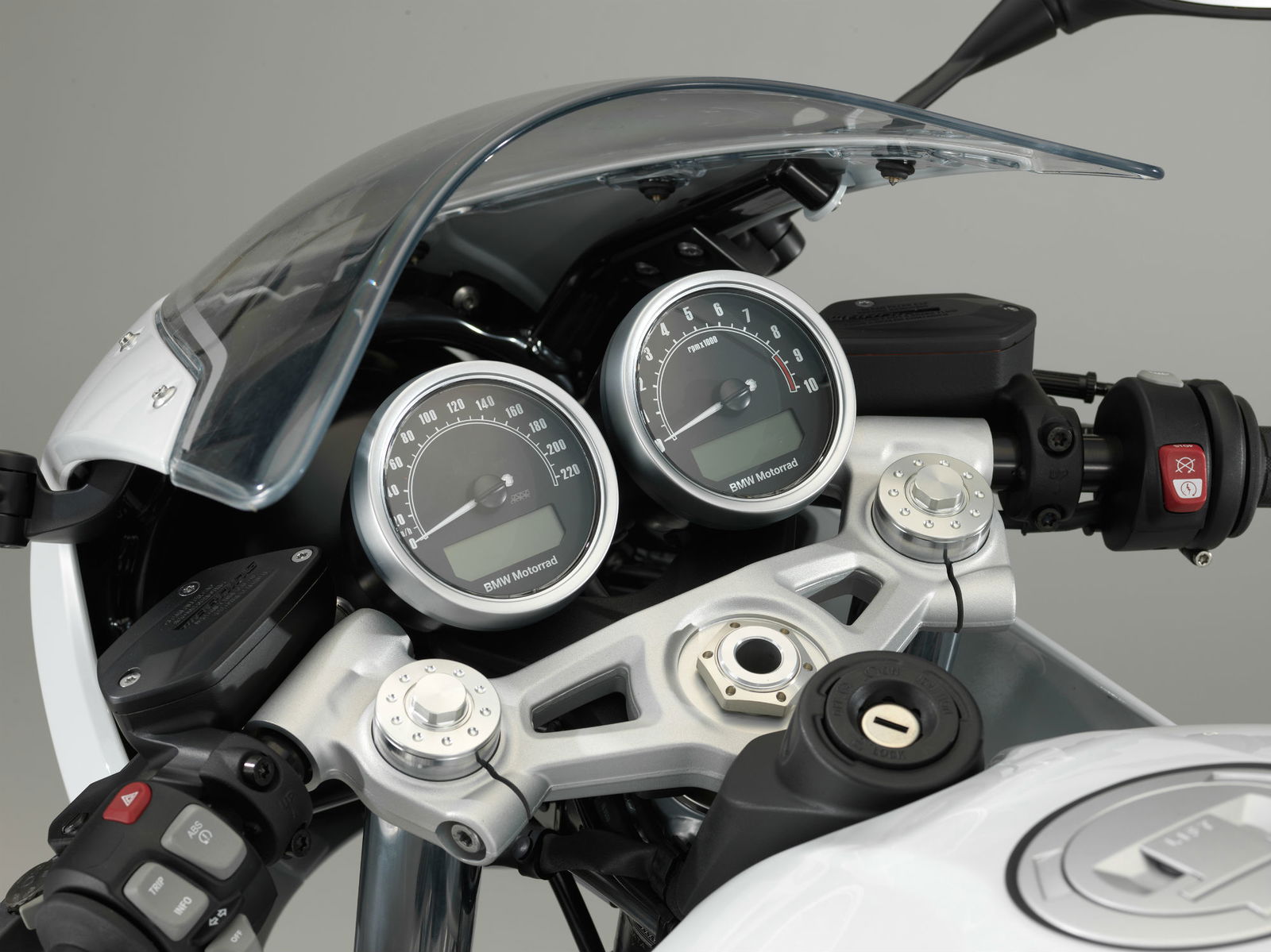
And we mentioned above the LED indicators on the S version of the R nineT Racer that we tested – are modern-looking LED indicators actually something we want on a café racer? We don’t think so.
The Thruxton R has much more traditional-looking blinkers and tail light.
That’s before we even get on to the BMW’s black plastic number-plate hanger.
CLICK NEXT FOR THE VERDICT AND SPECS
The payback for the R nineT Racer having lower-spec components than the original version is in the price: the original, at £12,300, is nearly £700 more than even the S version of the R nineT Racer.
But it’s not enough. It puts this BMW café racer within £600 of the Thruxton R. If the price difference was bigger, we might end this comparison by saying ‘Look, the Thuxton R is slightly better but it’s close, and the BMW wins because it’s better value.’
As it is, the Triumph R’s higher-spec components, extra equipment and more traditional styling and sound do seem to justify the extra £600. So get that one.
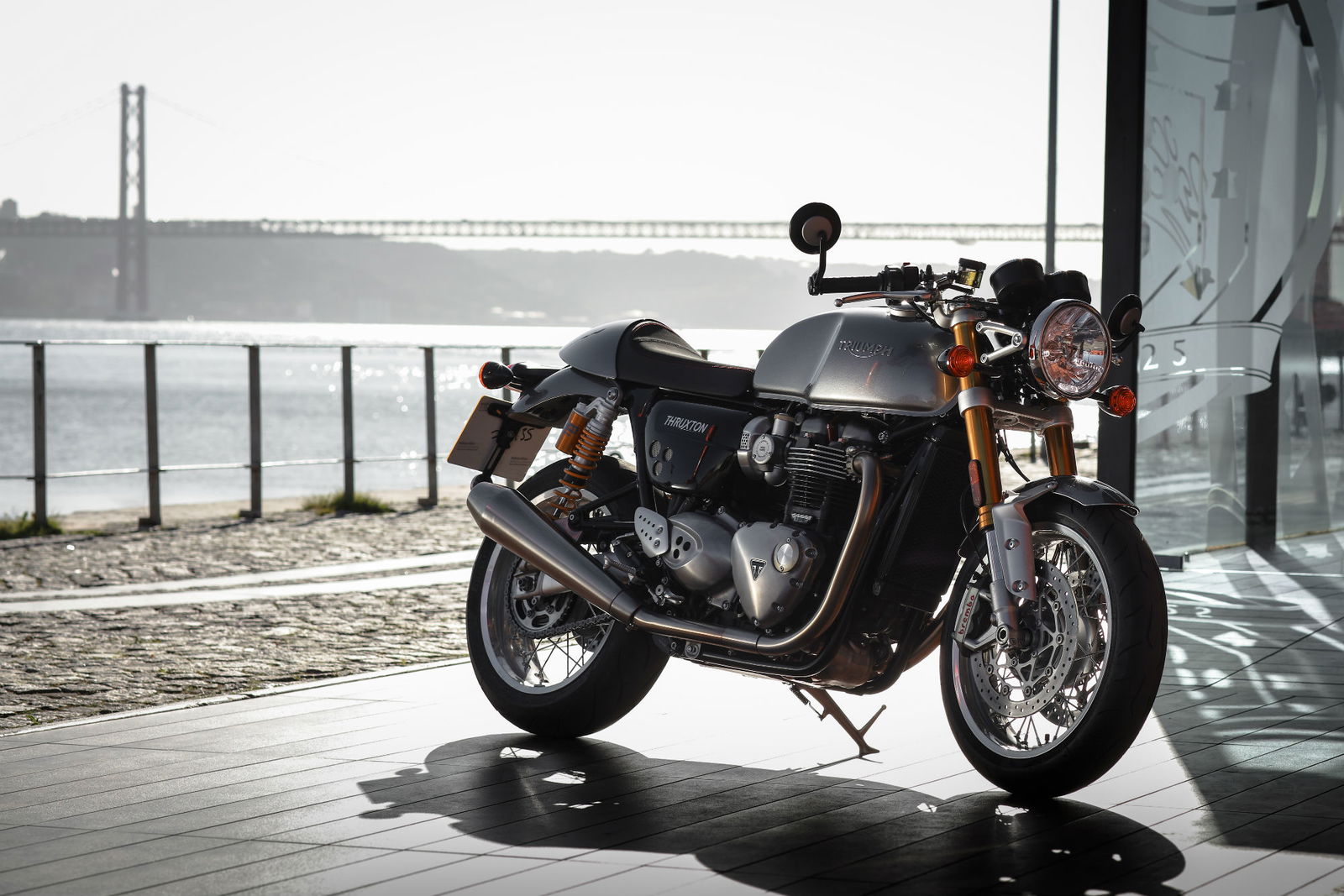
Specifications
Model tested: Triumph Thruxton R
Price: £12,200 plus tax and registration (£10,800 for Thruxton)
Engine: 1200cc liquid-cooled eight-valve SOHC parallel-twin
Power: 97hp @ 6,750rpm
Torque: 82.6lbft @ 4,950rpm
Dry weight: 203kg (Thruxton 206kg)
Frame: tubular steel cradle, aluminium swing-arm
Suspension: Showa 43mm USD big piston forks, fully adjustable with 120mm travel. Fully adjustable Öhlins twin shocks with piggyback reservoir and 120mm rear wheel travel. (Thruxton: Kayaba 41mm cartridge forks, 120mm travel; Kayaba twin shocks with adjustable preload, 120mm rear wheel travel)
Brakes: Brembo twin 310mm floating front discs and Brembo four-piston radial monobloc calipers. Single 220mm rear disc with two-piston Nissin caliper, ABS as standard (Thruxton: twin 310mm front discs with two-piston Nissin calipers, single 220mm disc rear disc with two-piston Nissin caliper, ABS as standard)
Fuel capacity: 14.5 litres
Fuel consumption (calculated from receipts): 47.8mpg
Seat height: 810mm (Thruxton 805mm)
Availability: Now
Model tested: BMW R nineT Racer S
Price: from £11,615 (£10,900 for base version
Engine: 1170cc oil/air-cooled twin-cylinder boxer, DOHC, four-valves per head
Power: 111.5hp at 7,750rpm
Torque: 85.55lbft at 6,000rpm
Frame: three-section steel
Weight (fuelled and ready to ride): 220kg
Suspension: front - Non-adjustable 43mm RWU forks / rear – paralever monoshock with adjustable preload and rebound damping
Brakes: Front – Twin four-piston Brembo calipers with 300mm discs / Rear – Two-piston caliper with 265mm disc
Fuel capacity: 17 litres
Fuel consumption (calculated from receipts): 44.5mpg
Seat height: 805mm
Availability: Now
